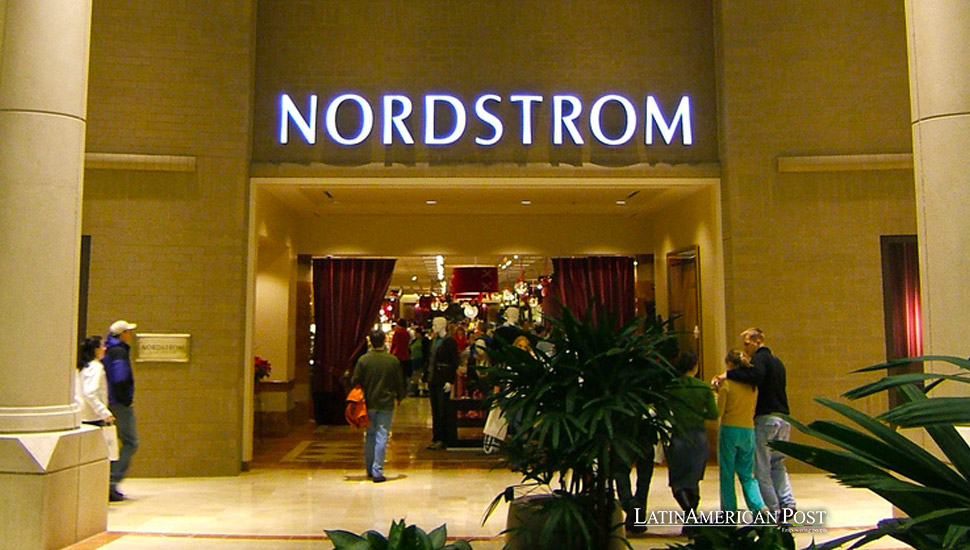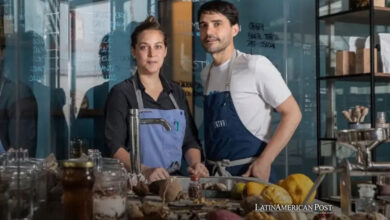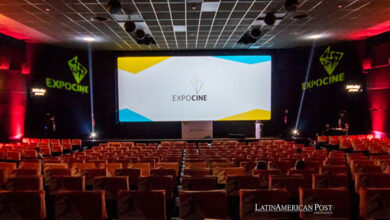Nordstrom’s Surprising Alliance with Latin American Giant to Stay Afloat

Facing declining sales in the luxury market, Nordstrom has partnered with Mexican retail powerhouse El Puerto de Liverpool to regain control of its namesake company. The joint venture could reshape both companies’ futures amid a shifting retail landscape.
Nordstrom, the iconic American luxury retailer, has been at a crossroads for the past few years, struggling to maintain its dominance in a rapidly evolving market. While many of its competitors in the luxury space have succumbed to changing consumer habits and economic pressures, Nordstrom has managed to survive—though not without challenges. Over the last five years, the retailer has faced a steady decline in sales and stock prices. Despite this, Nordstrom’s balance sheet has shown signs of life, and the Nordstrom family is determined to take back control of their namesake company.
In a bold move, the Nordstrom family, holding a 33% stake in the company, has offered $3.8 billion to purchase the remaining shares and take the company private. Their ambition is clear: returning Nordstrom to its family-owned business roots. However, the offer is not without complications, as the family’s previous attempts to regain full ownership have fallen short. The 2018 bid, for instance, was deemed insufficient, and their latest offer only slightly exceeds the company’s closing stock price before the bid.
Yet, there’s a twist in this latest attempt—a surprising Latin American ally has entered the fray: El Puerto de Liverpool, a Mexican luxury retailer with a long history and deep pockets, has teamed up with Nordstrom in what could be one of the most unexpected collaborations in recent retail history.
The Nordstrom Family’s Vision
The Nordstrom family’s desire to reclaim their company comes at a pivotal moment in luxury retail. Over the last decade, the market has seen a significant shift as online shopping has disrupted traditional business models. In a world where consumers increasingly seek convenience and competitive pricing, luxury retailers like Nordstrom have struggled to maintain their appeal. Brick-and-mortar stores, once seen as pillars of prestige, are now viewed by some as relics of a bygone era.
Nordstrom, however, has outperformed some of its rivals. Despite the industry’s struggles, the company has consistently demonstrated resilience, as evidenced by its Q2 2024 earnings report. With earnings per share of $0.96—exceeding analysts’ estimates by over 30%—the company has managed to maintain a degree of financial stability in a highly volatile market. However, the family remains convinced that Nordstrom’s future success lies in private ownership, where they can exert more control over its strategy and direction.
The family’s new offer of $3.8 billion, which includes a cash offer of $23 per share, represents their latest effort to bring Nordstrom under their complete control. Yet, the bid has challenges, particularly as the offer closely mirrors the stock’s current market value. A special board committee has been formed to evaluate the family’s proposal to ensure fairness for all stakeholders. This committee was first created during the family’s failed 2018 bid and will again play a crucial role in determining Nordstrom’s future.
A Surprising Ally
Perhaps the most unexpected element of Nordstrom’s latest bid to go private is the involvement of El Puerto de Liverpool, Mexico’s leading luxury retail and real estate company. While the partnership between the two may seem unconventional at first glance, a deeper look reveals several shared interests that could mutually benefit this collaboration.
Like Nordstrom, El Puerto de Liverpool has faced challenges in recent years. The company’s stock has been on a downward trajectory, having declined by nearly 20% over the past three months. El Puerto de Liverpool has long been considered a regional leader with a significant presence in Mexico’s luxury retail market. Yet, much like Nordstrom, the company has struggled to adapt to changing consumer behavior, particularly in the face of rising e-commerce trends.
This partnership is not entirely new. In 2022, El Puerto de Liverpool quietly acquired a 10% stake in Nordstrom, signaling its interest in aligning with the American luxury retailer. With Nordstrom’s latest bid to go private, El Puerto de Liverpool has become a key player in the deal. Under the terms of the proposed agreement, the Nordstrom family would retain a 50.1% controlling stake in the company, while El Puerto de Liverpool would own the remaining 49.9%.
This collaboration offers both companies a chance to revitalize their businesses in an increasingly competitive market. By joining forces, Nordstrom and El Puerto de Liverpool hope to leverage each other’s strengths, expand their customer bases, and solidify their global luxury retail market positions.
The Changing Retail Landscape
The potential benefits of the Nordstrom-El Puerto de Liverpool partnership are clear, but the road ahead is not without challenges. The luxury retail sector has experienced significant disruptions in recent years, driven by the rise of e-commerce, changing consumer preferences, and the impact of the COVID-19 pandemic. While both companies have managed to stay afloat, they must navigate several hurdles to emerge as leaders in the post-pandemic retail landscape.
For Nordstrom, one of the primary challenges will be maintaining its reputation as a premier luxury brand. As online retailers like Amazon continue to dominate the market, Nordstrom must find new ways to differentiate itself and offer unique value to its customers. The company has already made strides in this direction with initiatives such as Nordstrom Local, a series of small, service-oriented stores designed to enhance the customer experience. However, more work remains to be done if Nordstrom is to fully capitalize on its brand equity and reestablish itself as a leader in the luxury space.
Similarly, El Puerto de Liverpool faces its own set of challenges. While the company remains a dominant force in Mexico’s retail market, it has struggled to maintain growth in recent years. The partnership with Nordstrom represents an opportunity for El Puerto de Liverpool to expand its reach beyond Latin America and tap into new markets. However, the company must address its declining stock price and find ways to reinvigorate its business in an increasingly digital world.
What the Future Holds for Nordstrom and El Puerto de Liverpool
The partnership between Nordstrom and El Puerto de Liverpool represents a bold move for both companies as they seek to navigate the shifting landscape of luxury retail. By joining forces, they hope to pool their resources and expertise to overcome the challenges they face and chart a new course for their businesses.
For the Nordstrom family, the ultimate goal remains clear: to bring their namesake company back into family ownership and restore it to its former glory. With the support of El Puerto de Liverpool, they may have found the ally they needed to make this vision a reality.
Also read: AbraSilver’s Argentina Project Seeks Balancing Progress and Environmental Concerns
As the retail sector continues to evolve, the success of the Nordstrom-El Puerto de Liverpool partnership will depend on both companies’ ability to adapt to changing consumer expectations and leverage their combined strengths. If successful, this collaboration could serve as a model for other luxury retailers facing similar challenges, demonstrating the power of strategic partnerships in an increasingly competitive market.





